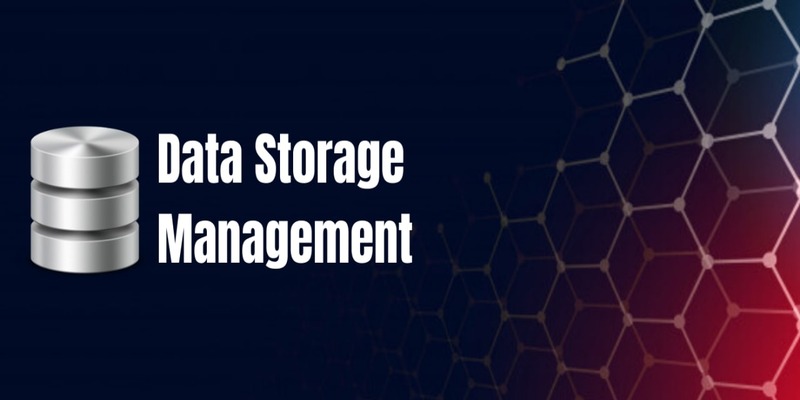Data assurance is now more important than ever in the environment of artificial intelligence (AI), which is transforming sectors of life. AI systems mostly depend on enormous volumes of data to make choices, forecast results, and run operations. However, the success of AI is just as limited as the data it consumes. Inaccurate conclusions, immoral decisions, and even security breaches might follow from poor quality, biased, or even insecure data.
Data assurance then becomes important. It guarantees accurate, dependable, and safe data-feeding artificial intelligence systems. The need for data assurance cannot be emphasized as artificial intelligence develops and becomes more integrated into daily life. This article will discuss why data assurance is important in artificial intelligence and how companies can protect their data for the best AI performance.

Data assurance is the set of procedures to guarantee data accuracy, consistency, security, and dependability. Artificial intelligence ensures that the data used to teach machine learning models is reliable and high quality, not just data cleansing. AI systems learn and create predictions using enormous volumes of data. Hence, any defects in the data might cause major issues such as mistakes, prejudices, or unforeseen repercussions.
AI systems must generate fair and consistent results; hence, data assurance is necessary. It guarantees protection against dangers and constant, reliable data. By confirming data integrity, organizations can lower the risks of implementing artificial intelligence in different sectors. The difficulties in preserving data quality follow the complexity of AI models, so strong data assurance techniques become increasingly important.
The success and fairness of the results directly depend on the quality of the data applied in artificial intelligence models. AI systems acquire knowledge through the data they are trained on; hence, if the input is insufficient or erroneous, the model can produce biased or flawed findings. For instance, if an artificial intelligence system is taught on insufficient or biased data, it may reinforce existing prejudices or overlook particular groups.
Avoiding these problems calls for maintaining data integrity. Regular audits and validation tests, among other data assurance techniques, help to find mistakes early in the process. It is especially crucial in healthcare, banking, and criminal justice—where artificial intelligence choices can have major real-world impact. In these situations, the legitimacy and impartiality of the results of AI systems depend critically on the dependability of the data they employ.
Artificial intelligence has greatly complicated data management. Modern artificial intelligence systems create and evaluate enormous volumes of data at amazing rates. This enormous volume of data might overwhelm conventional approaches to data assurance and call for sophisticated tools and strategies to guarantee data quality. Real-time data in machine learning algorithms is commonly required, and it can come from many sources—sensors, human inputs, or historical records.
Given the volume and diversity of data handled, data assurance becomes more challenging and important in artificial intelligence models. Ensuring that the data is accurate is only one aspect; another is ensuring it is current, relevant, and able to support artificial intelligence activities precisely. Organizations must deal with these difficulties by using strong data assurance systems to manage the rising needs of artificial intelligence technology while preserving excellent data quality.

Data privacy and security are paramount in the age of artificial intelligence. The effective operation of artificial intelligence systems sometimes depends on access to private or corporate data. Breaches of this data, however, can have major financial and legal ramifications. Mechanisms for guaranteeing that private data is controlled against illegal access or usage constitute part of data assurance.
AI systems depend critically on rigorous data security measures, including access restriction and encryption. It guarantees that any information utilized in the GDPR or CCPA-compliant privacy rules is kept safe and conforms with privacy policies for AI models' training. Data assurance partly makes compliance and protecting user confidence—crucial for the general acceptance of artificial intelligence in many sectors—partly possible. Companies must also seriously consider the ethical issues of exploiting personal data in artificial intelligence. Data privacy helps companies avoid possible legal problems and lower their risk of damaging staff or customers.
Data assurance suffers many difficulties when artificial intelligence grows rapidly. One of the key difficulties for artificial intelligence systems is their massive volume of data requirements. Especially when data comes from several unstructured sources, gathering, cleaning, and validating such enormous volumes of data can be difficult. Furthermore, AI models are always changing and need continuous updates of the training data. Another challenge is the presence of biases in the data. AI systems fed biased data can reinforce and even magnify these prejudices. For example, if trained on biased data, AI algorithms applied in criminal justice or hiring processes may produce discriminating conclusions.
Data assurance mostly depends on ensuring that data utilized in artificial intelligence systems is fair, objective, and representational. Data quality is ultimately a continuous issue as well. Artificial intelligence systems must be taught about high-quality data to guarantee that the models acquire the right patterns. Bad model performance and faulty conclusions resulting from low-quality or erroneous data can result from Overcoming these obstacles, which requires consistent data correctness and uniformity achieved by regular inspections.
In summary, in the era of artificial intelligence, data assurance is vital to guarantee that AI systems run fairly, safely, and effectively. Maintaining accurate, high-quality, safe data is essential for producing consistent outcomes as artificial intelligence develops and affects different sectors. Organizations should prioritize data integrity, privacy, and security to stop prejudices, mistakes, and breaches. Strong data assurance techniques help companies to reduce risks, increase confidence, and optimize artificial intelligence technology possibilities. The future success of artificial intelligence applications depends mostly on correct data assurance.

By Mark Allen/Mar 06, 2024

By Georgia Vincent/Jun 17, 2025

By Noah Jones/Nov 13, 2024
By Frederica/Nov 09, 2024

By Peter Evans/Mar 08, 2024

By Lucy Lee/Mar 29, 2024

By Amelia Martin/Oct 21, 2024

By Vicky Louisa/Apr 02, 2025

By Lucy Lee/Feb 08, 2024

By Eleanor/May 12, 2024

By Eleanor/Oct 17, 2024

By Madison Evans/May 22, 2025